Being a mother is difficult. In fact, it’s the equivalent of having 2.5 full-time jobs, recent studies show. Hearing this, we don’t even want to imagine what it’s like doing it all on your own.
Luckily, u/Few_Blood1369‘s mother had a daughter who helped her out with four little munchkins. Cleaning, cooking, doing groceries — this 20-year-old did the lion’s share of mom duties. And so, when she announced plans to move out, like people in their early 20s usually do, her mother wasn’t particularly happy.
Accused of only thinking about herself, this Redditor turned to the trusted ‘Am I The A-Hole‘ subreddit to see what others would do in her place.
Having someone by your side to help raise healthy, little humans when you’re a single parent is always appreciated

Image credits: Kampus Production (not the actual photo)
Yet, when the person who does the most heavy lifting decides it’s time to move on, things can get complicated
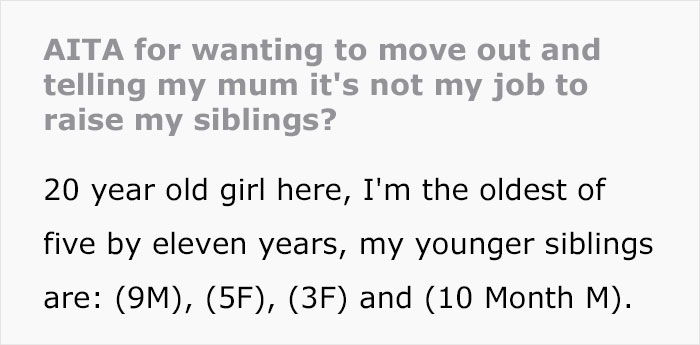
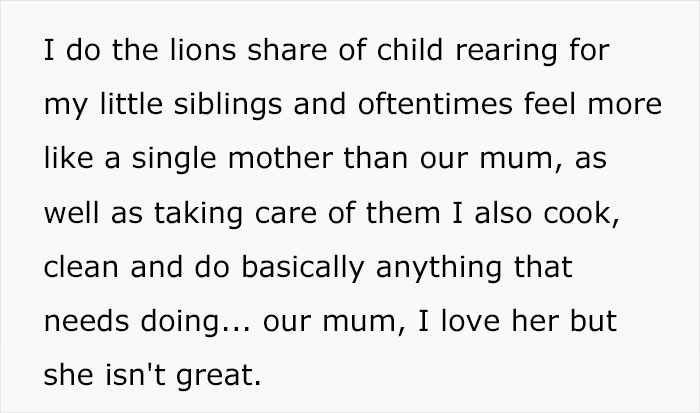
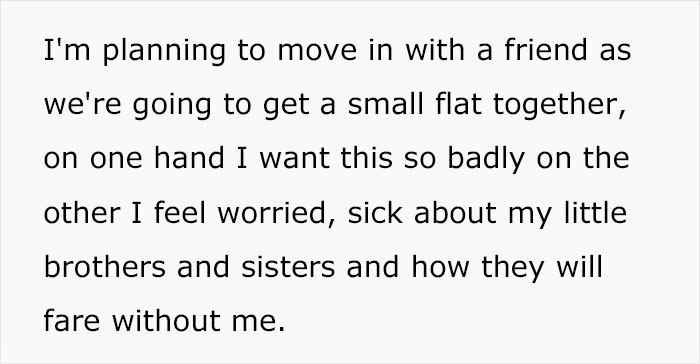
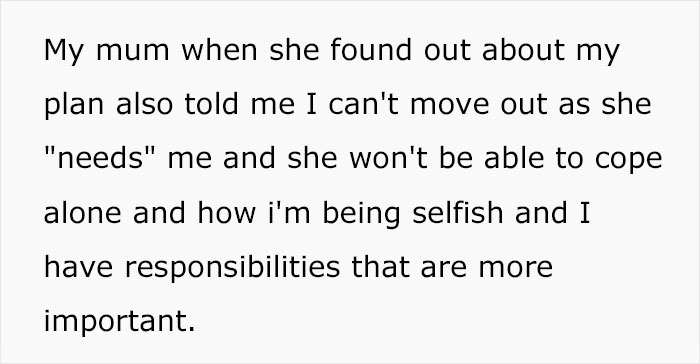
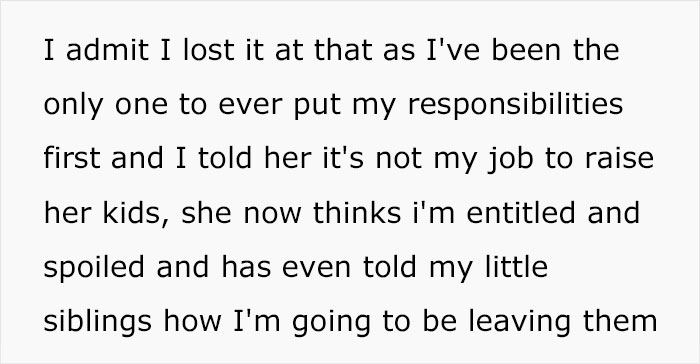
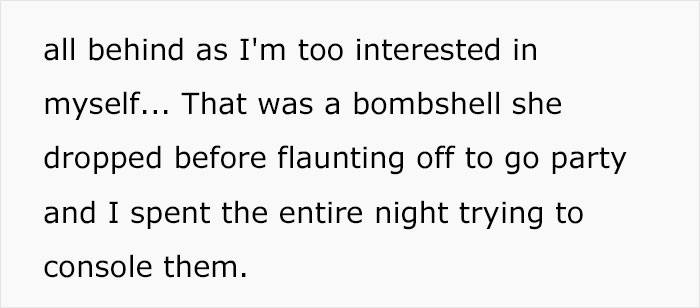

Image credits: Few_Blood1369
The author clarified a few important things for context
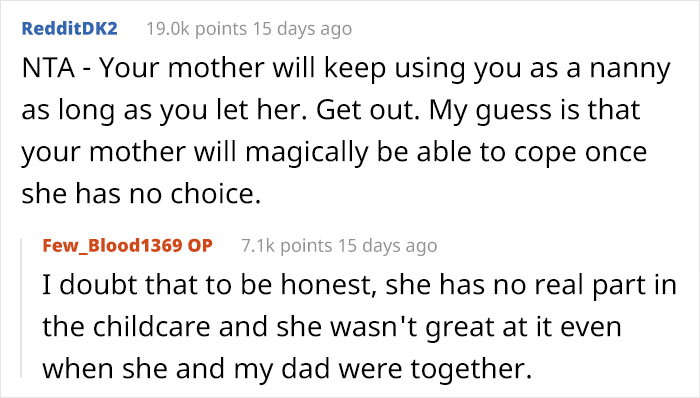

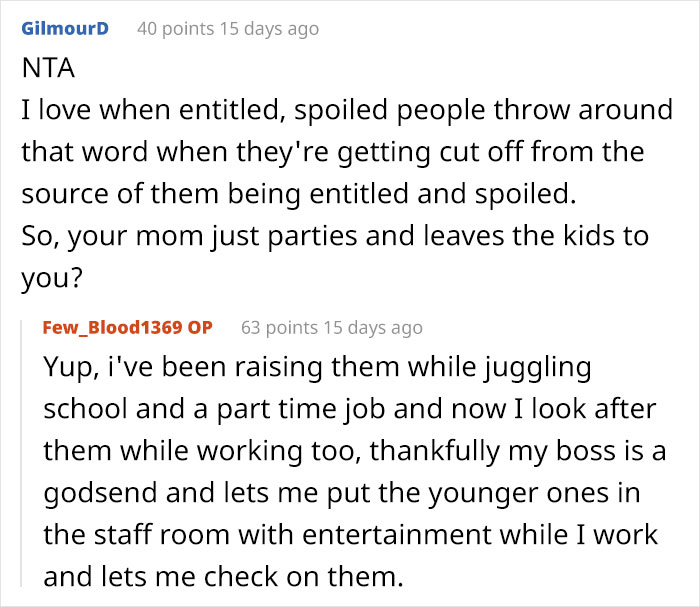
And explained what it would mean to her to leave the little ones behind
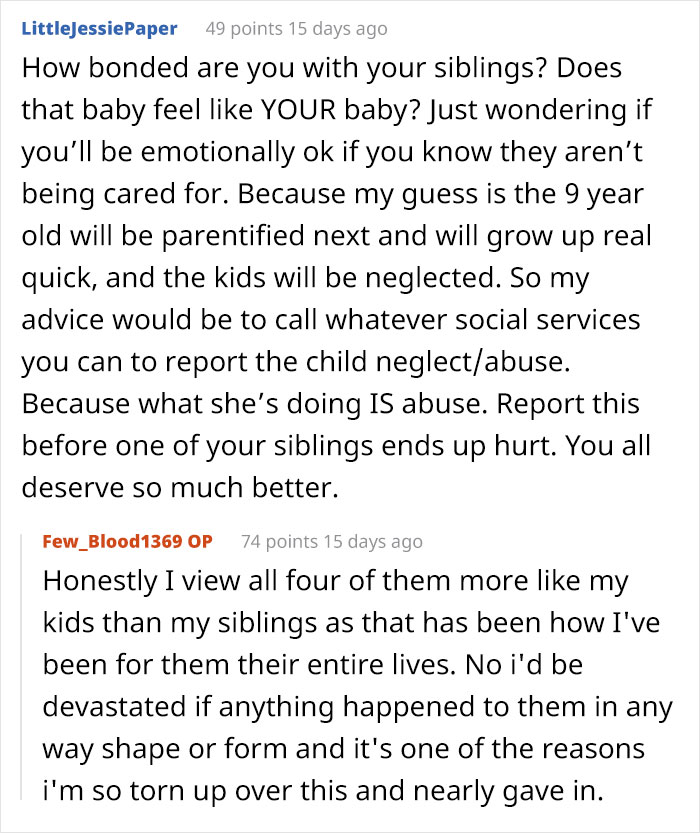
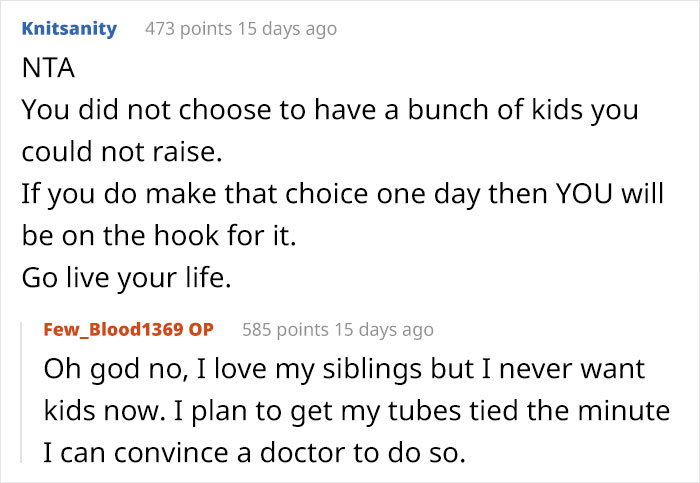
The sad truth is, almost a quarter of US children under the age of 18 live with one parent and no other adults, a higher share than anywhere else in the world, according to recent studies. And although the stress and exhaustion level of being the sole breadwinner for five mouths is enough to make most parents gasp out of sympathetic horror, placing your child between a rock and a hard place, deliberately or unintentionally, is not something a loving, caring parent should do.
Nor should a parent ever use their kids, however capable and grown-up they seem, to fill the gap of a missing parent. Imi Lo, psychotherapist and author of the blog Living with Emotional Intensity, calls it ‘parentification.’ Besides “extreme anxiety and other nervous-compulsive disorders,” including severe depression, Lo notes that parentified children, forced to shoulder responsibilities of their lone parents, are more likely to have parenting problems of their own.
The messy part of trying to win back your independence, then, is navigating the emotional minefield some parents might use to keep their children in place. Diane Barth, psychotherapist and the author of ‘I Know How You Feel: The Joy and Heartbreak of Friendship in Women’s Lives,’ believes the best way to rip off the band-aid without damaging the relationship with your parent is trying to be compassionate. “What’s important for the kid to remember is that the parent provokes guilt or gets manipulative because they’re feeling desperate and abandoned,” Barth told Bored Panda.
Barth understands how difficult it must be to remain firm in the face of your agitated, disappointed parent, but reminds us that eventually they always come around. “I’ve had a number of people go through this and let me tell you this: handled the right way, even though the parent acts like a terrible thing just happened, they will come around.” They might try to turn your decision to move out and spend savings on an expensive apartment (when you can, instead, live rent-free and save money) upside down, Barth has noticed, but the key is being firm. “They might not understand the reasoning at the moment, but they do eventually.”
This is what people had to say about this complicated situation
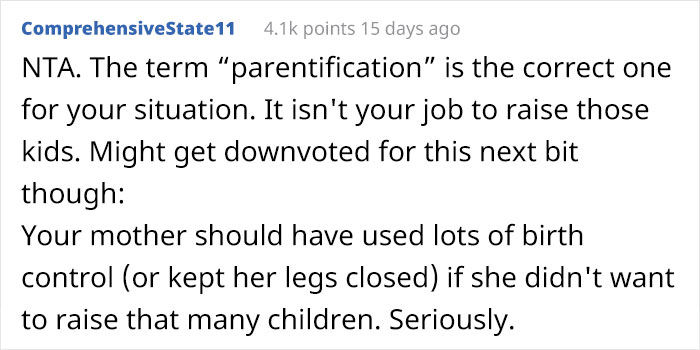
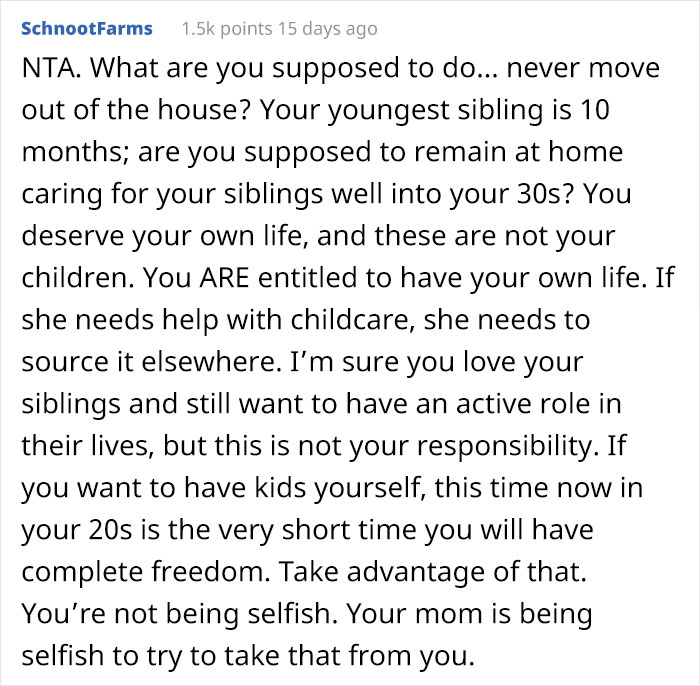
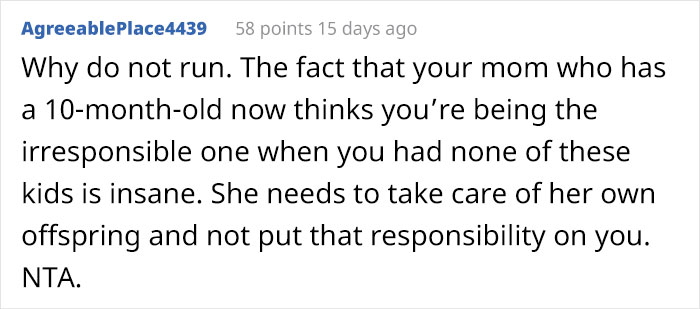
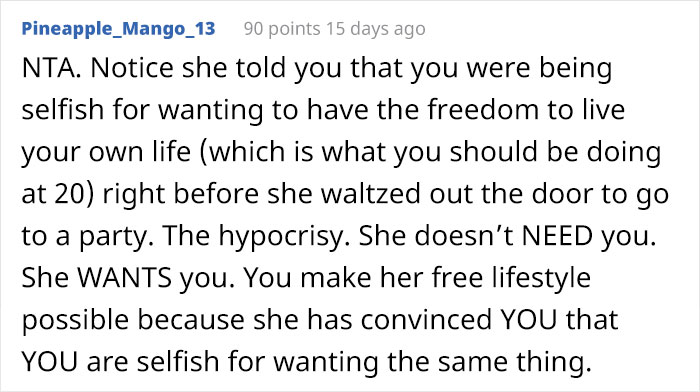
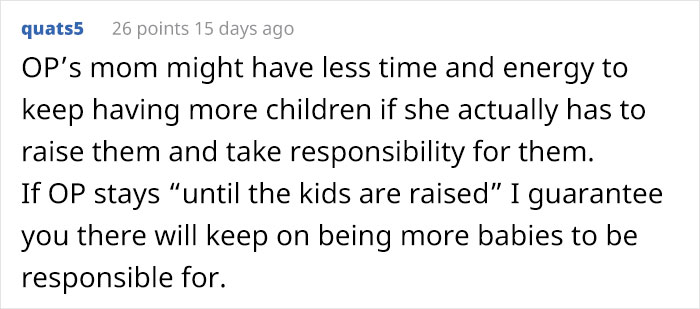
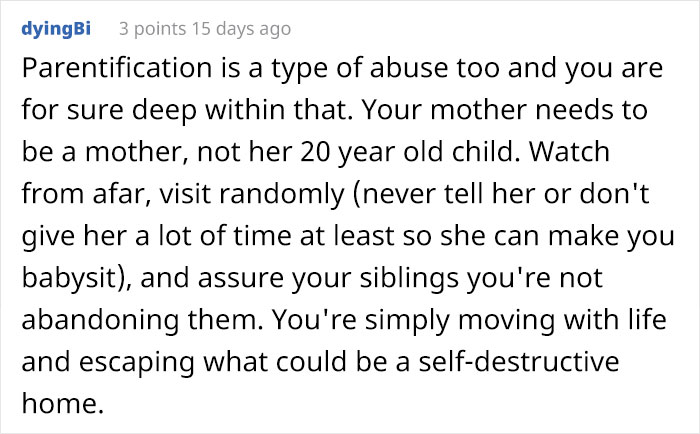

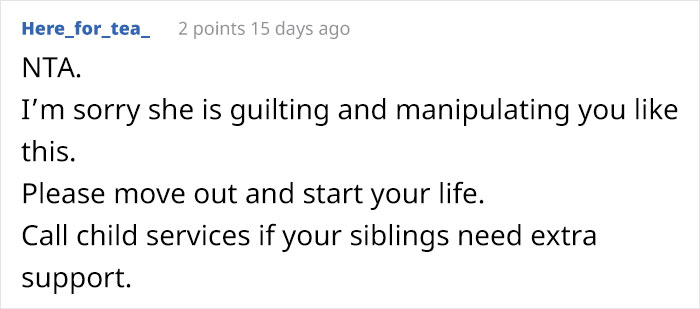

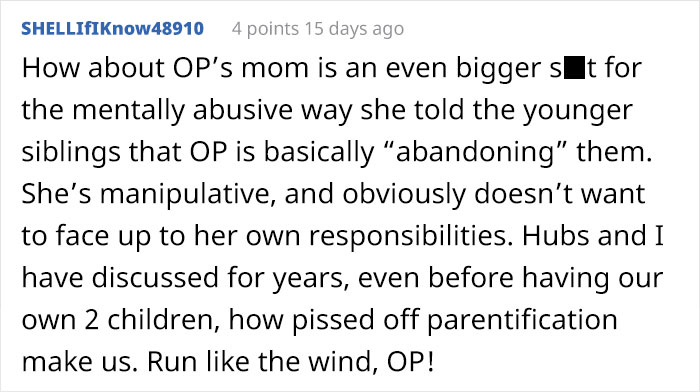
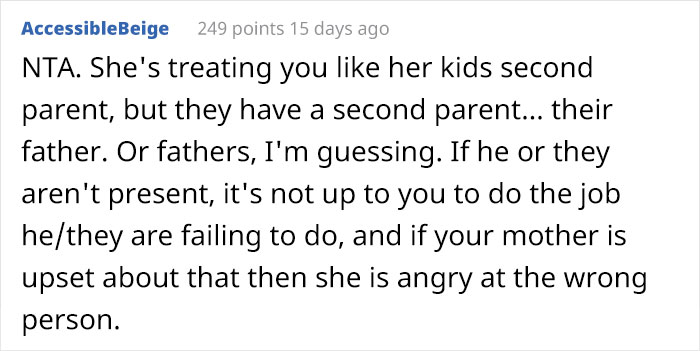
Dr. Lynn Margolies, a Boston-based Ph.D. psychologist and the author of the ‘Therapy Insider’ blog in Psychology Today magazine, thinks the need to use guilt-tripping as a way to cope with the growing independence of their children often comes from “insecure attachments” that the parents pass down from their own childhood. “When you can’t regulate your own feelings, you try to feel better by attempting to control what other people do, like forbidding emotional separation and autonomy,” Margolies explained to Bored Panda.
Similar to Barth, she recommends approaching the conversation “in a planned way” — one that is firm but kind, able to get through the thickest emotional armor. “An example of the wording of a good boundary setting-argument, one that can’t be argued with, is: ‘I know you want me to stay. I love you and I’m not abandoning you. But I am going to make my own decision about this,'” she advised, noting that surrendering to emotional manipulation can often do more damage to the long-term relationship than not doing what you think is best for you.
Another important thing both Barth and Dr. Margolies touched upon is the importance of not getting involved with the mind-games of name-calling. It’s easy to get lost in the midst of an argument and respond to belittlement or an ugly insult in the same way. We all have been there and know how easy it is to fly off the handle. However, Barth says that taking the high ground in a hostile confrontation is the first step of moving in the right direction.
“Getting sucked into having those name-calling fights is part of the parent’s dynamic,” Barth pointed out. “So, the more a child can say, ‘I’m not going have this conversation while you’re calling me names’ — the easier it will be to navigate out of mother’s emotional manipulation.”
Hey, Pandas! Looking for something chewy to read? Check this out.
The post 20-Year-Old Woman Who Helped To Raise Her Four Siblings Decides To Move Out, Mom Loses It first appeared on Bored Panda.
from Bored Panda https://bit.ly/3Hxpizh
via Boredpanda